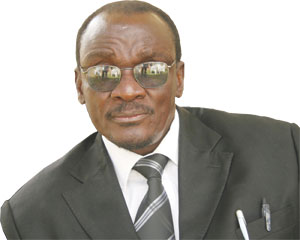
On January 16 2018, the media reported that Vice-President Kembo Mohadi made remarks that insinuated that the government would approach traditional leaders to help deal with the Gukurahundi issue. It is reported that the vice-president said that traditional leaders would help in spearheading healing.
“It is in our interest to forgive each other and move forward although some will not find it easy,” the vice-president is reported to have said.
Vice-President Mohadi is responsible for national healing and reconciliation. His comments come in the backdrop of the gazetting of the National Peace and Reconciliation Commission Act (NPRC Act) which seeks to operationalise the National Peace and Reconciliation Commission.
We believe that Zimbabwe must be ready to confront its past legacy of violence fearlessly in order to build a future in which that past does not repeat itself again. We acknowledge that this will be a very complex process but we believe the collective wisdom of the people of Zimbabwe has already laid the basis of how that process must be handled through the demand for a National Peace and Reconciliation Commission (NPRC) established by section 251 of the Constitution. The rationale of putting in place an independent commission to lead the process of dealing with the past comes from the realisation that the government, which itself is also implicated in some of the gross human rights violations to be investigated, may not be the best entity to lead that process.
For long, many victims of past violations have always wondered if the government of Zimbabwe will be sincere enough to allow the NPRC to do its work without interference. Section 235 of the Constitution of Zimbabwe clearly states that the independent commissions are not subject to the direction and control of anyone. The United Nations guidelines state that once established, the commission should operate free of direct influence or control by the government, including its research and investigations. The guidelines further state that political authorities should give clear signals that the commission will be operating independently.
We believe the NPRC must be allowed to design its own strategies for dispensing its constitutional mandate without the influence of a vice-president or any other political authority. The question of what approach to healing will be adopted must be answered through a national dialogue which prioritises the views and interests of the victims and best answers to the NPRC’s healing mandate. The Constitution clearly tasks the NPRC to spearhead national healing. That mandate cannot be parcelled out to another group by political authorities. The NTJWG “Minimum Standards for an Effective NPRC” (2015:3) clearly states that any attempt to dilute or limit the NPRC’s constitutional mandate must be resisted.
Furthermore, there is considerable evidence that traditional leaders have acted in partisan fashion, particularly around elections, and therefore may be subject to enquiry by the NPRC. This suggestion of the vice-president will undoubtedly create a very serious conflict of interest.
We, therefore, urge all political authorities to exercise restraint and extreme caution in the way they choose to get involved in matters that fall within the mandate of the NPRC. Particularly, politicians in positions of authority must desist from making statements that may appear like they are giving direction to the NPRC. We emphasise that while the vice-president is responsible for national healing and reconciliation according to his executive assignment, he has no control over the NPRC. The NPRC is only accountable to the Parliament and the role of the executive is purely administrative. It remains very crucial that as the NPRC commences its work, its operational independence is not only proclaimed by law, but is seen in practice. This helps build confidence in the ongoing national healing and reconciliation processes.
- Chamisa under fire over US$120K donation
- Mavhunga puts DeMbare into Chibuku quarterfinals
- Pension funds bet on Cabora Bassa oilfields
- Councils defy govt fire tender directive
Keep Reading
Alec Muchadehama
NTJWG chairperson
Alec Muchadehama is the Chairperson of the National Transitional Justice Working Group (NTJWG). NTJWG is a platform established by 46 Zimbabwean organisations representing various transitional justice stakeholders to provide the interface between transitional justice stakeholders and the official transitional justice processes in Zimbabwe. For more information, see www.ntjwg.org.zw Comments on this article can be sent to [email protected]











